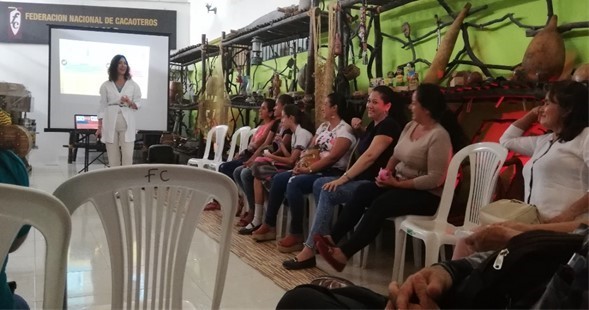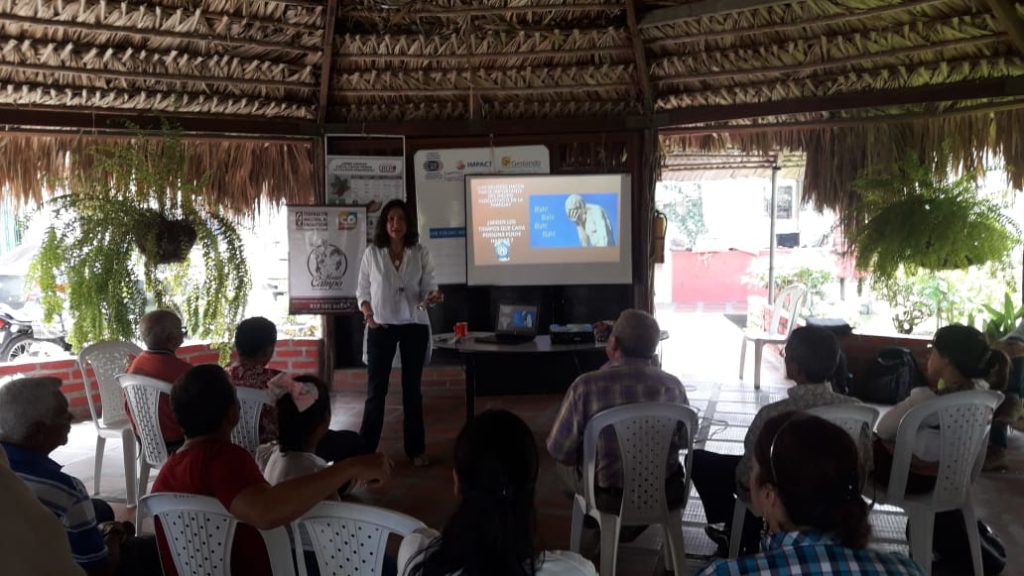By Deborah Foy, Agricompas
Today is International Women’s Day. It’s also the end of the Fairtrade Fortnight campaign, “She Deserves”. Over the past two weeks, some powerful stories have been shared of the farmers behind our chocolate bars, farmers who are often exploited and underpaid. Farmers like Edith, a cocoa producer in Côte d’Ivoire who is passionate about helping other farmers in her community to build better lives for themselves and their families.
Around the world, women’s labour is a crucial part of the cocoa value chain. However, this contribution is often unrecognised. Fairtrade’s recent report, “The Invisible Women Behind Our Chocolate”, highlights that women carry out 68% of the labour in cocoa farming, but earn only around 21% of the income.
At Agricompas, we are keen to increase the participation and visibility of women in the cocoa value chain. We agree with Fairtrade that unlocking the power of women will be key to accelerating the rate of progress for communities.
In Colombia, working in partnership with Fedecacao and Solidaridad, we conducted research last year in two cocoa-growing communities in Santander and Valle de Cauca. We wanted to understand the gender divisions of labour in cocoa – in particular, producers’ roles and responsibilities within cocoa production, as well as the gender dynamics of household responsibilities and domestic tasks. Our research was funded by the UK’s Prosperity Fund for Colombia, which recognises that gender equality and women’s economic empowerment are key drivers of inclusive growth.

It was no surprise to learn that women play an important role in cocoa production in both communities. They are particularly involved in early crop care and in maintenance activities such as weeding and pruning, which are critical to enhancing future crop yields and final production of quality beans. Women also play an important role in post-harvest activities.
In Valle de Cauca, for example, women are largely responsible for the process of selecting and packaging the beans for sale. In Santander, less than 5% of the male cocoa farmers we interviewed are involved in post-harvest activities; the job of shelling cocoa cobs, fermentation and bean drying largely falls to women. These tasks are also critical for quality, since beans must be dried slowly to lose humidity and acidity, taking care to prevent internal or external fungus from ruining the beans.

Cultural norms in Colombia also act as barriers for women in cocoa-growing communities. Alongside their participation in cocoa production, women are engaged in household duties and care work that enables other labourers to be productive. In Santander, unpaid domestic household activities are much more likely to be performed by women. In Valle de Cauca, the female farmers that participated in our study were entirely responsible for cooking and cleaning, as well as doing laundry, ironing clothes and caring for grandchildren. These cultural norms are limiting women’s access to economic opportunities. For example, 80% of the women we interviewed stated that taking care of dependents is a barrier to their participation in cocoa crop activities.
The theme of this year’s International Women’s Day is, “An equal world is an enabled world.” Our research in Colombia has shown us that women are at the heart of cocoa production. We must now work with our partners and others in the value chain to make sure that women are visible and that their contribution is recognised.